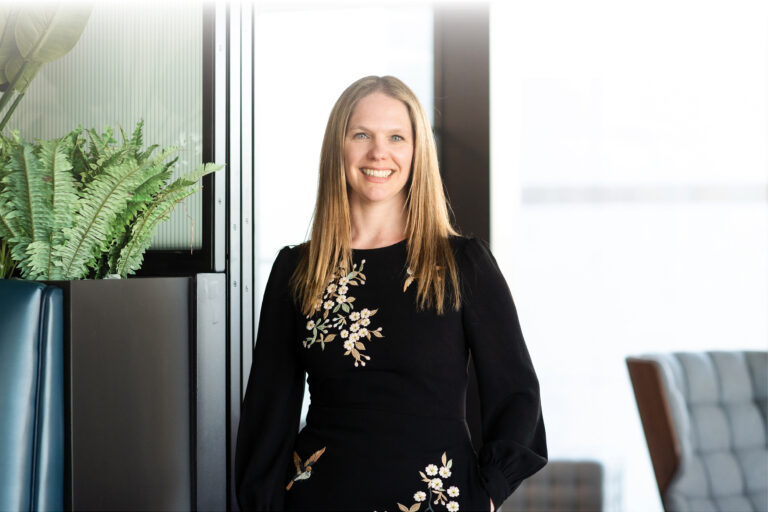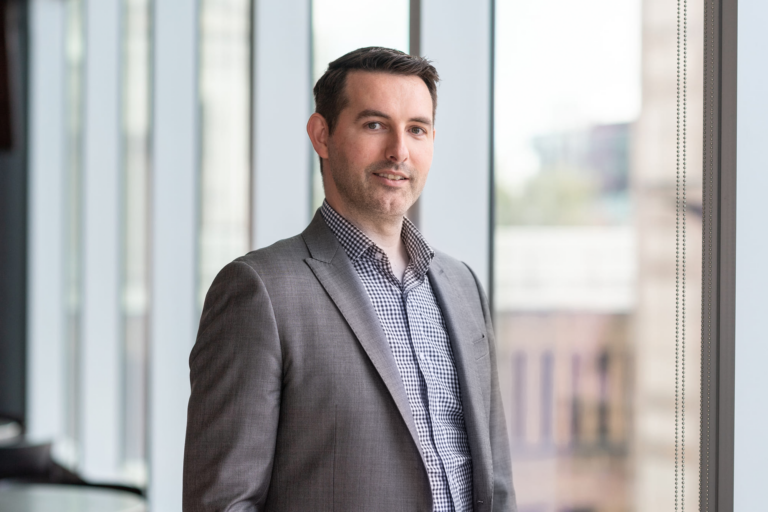MP: Thank you for agreeing to participate in this series. I understand it has been an incredibly busy year for you, particularly with your work on EPO oppositions and appeals, litigation support, and UPC matters. Many of our readers will already be familiar with you – or know of you – given your recognition as a Recommended Individual by JUVE, IAM 1000, and Who’s Who Legal.
To start, could you share what you enjoy most about your role?
DP: It’s definitely working on oppositions and appeals. I love it: being up against another party, having to think on your feet, reacting quickly to come up with counter-arguments in real time; it gives me a real buzz. The drafting and prosecution side of a patent attorney’s role can be quite an individually-focused one, typically sitting alone in a room reviewing lots of documents (and one that I enjoy, to be clear), but the contentious side of the profession opens up the potential to work with and advise clients as part of a larger team. Working in a team, often including international experts, is an exciting prospect. You have to work together in coming up with arguments, preparing your case and refining your strategy.
MP: Working as part of team can be very rewarding.
DP: I completely agree. The opportunity to exchange ideas, build a case that leverages your team’s unique strengths, and prepare for hearings is incredibly rewarding. There’s also an exhilarating aspect to thinking on your feet and adapting strategies under time pressure during breaks in hearings.
As an advocate in opposition and appeal proceedings before the EPO, you need to take centre stage. You are responsible for running the case and convincing the Opposition Division or the Board of Appeal of the merits of your arguments. It’s one of the most dynamic and exciting parts of the job.
I also really enjoy working on litigation matters. It’s fascinating to delve into what the client is doing, understand their goals, and contribute meaningfully as part of a larger team effort. It’s gratifying to see how your input fits into the bigger picture and drives results.
MP: It is certainly an exciting part of a patent attorney’s job. How many years have you been working in patents?
DP: Over 23 years now.
MP: That’s a lot of years’ worth of experience. Do find you often end up before the same members of the Opposition Division or Boards of Appeal?
DP: Yes – You know when you’ve been around for a while when they don’t ask for ID at the start of the hearing anymore!
MP: Agreed.
DP: That is a good thing, really, as it gives us a feel for how members of the Division or Board might react to our arguments, where they might be more stringent, or accommodating, towards certain arguments.
You also often frequently come up against the same people on the other side.
MP: Moving to discuss a different forum, you’re lucky enough (if luck is the right word) to have gained valuable experience in proceedings before the UPC in its first years since inception. What has your experience been so far – right at the start of the court’s existence?
DP: Working as part of a larger litigation team, it’s been a very positive experience for the team and me. We’ve principally worked on four cases – two were heard at the Paris Local Division, one in Munich, and the last didn’t reach trial due to a settlement. The team was successful in all three of the decided cases before the UPC – getting all three patents revoked – which has been a great achievement.
Although it’s a Unified Patent Court, there is a local flavour to the way different divisions run their cases. In Paris, we’ve noted that you’re unlikely to get much of an indication of the way the judges are leaning beforehand. In contrast to this, in Germany, you get more of a steer from the judges as to their initial opinions. Understanding such differences has been very helpful in formulating strategies.
It is pleasing for the litigation team to have achieved success across different Divisions of the UPC. This reflects the strength of the teamwork and the ability to harness the diverse skills and expertise within the team during the preparation and strategy phases to present a strong, tailored case. A significant portion of the work is done well in advance of the hearing, and having such brilliant minds to collaborate with during that stage is both an invaluable asset and an incredibly rewarding way to work.
MP: How have you found the speed of the process? The deadlines set can be quite short.
DP: Yes, they can be. The UPC written procedure feels a bit like EPO, but… boosted. Hearings also tend to be shorter than those at the EPO. Before the UPC hearing, there is a case management conference to agree the key issues for discussion and the time each party will be allocated to argue each specific point. It can be quite prescriptive, unlike the EPO, but that means you know when it’ll finish. If a case says it will finish at 4pm, it’ll be over at 4pm; not running on until 9-9:30pm at night as can be the case at the EPO!
MP: I’ve had a long hearing like that recently.
DP: Painful!
MP: If the schedule is very prescriptive, do you get a chance to rebut arguments from the other side before the UPC?
DP: It may depend on what’s been agreed beforehand. In one case, on the day of the trial, the other side asked for a rebuttal and this had to be debated a little before being allowed. You have to think about that sort of thing when you’re planning for the trial, at the case management conference, and build in time for questions and rebuttals during your allotted schedule well in advance.
MP: That’s a very helpful tip! What are the Local Division courts like? I’ve heard that Paris is somewhat hidden and can be difficult to find!
DP: That’s true. There are two very similar roads in Paris and the court is on the slightly more obscure one, it’s easy to miss. The entrance is round the back. It doesn’t really stand out either – it’s been nicknamed ‘l’appartement’ as it looks like a residential building!
The court itself is actually quite small. On one case, there wasn’t enough space in the room for all of us, so some of the parties’ teams – some of whom had flown all the way from the US to attend – had to watch it on video in an overflow room next door.
In fact, that case was the very first full hearing on the merits in the Paris Local Division.
MP: Oh wow!
DP: Yes. That was special.
MP: To touch more on your own career for a moment – what skills do you have that are most relevant to working with the UPC?
DP: As I touched on before, I think that experience with EPO opposition and appeal work is highly relevant. When preparing and defending oppositions, you’ve got to think in the same way as you would when working on a UPC case. The written case you make is key as the hearing can be quite short. You can’t be reinventing the wheel before the judges in court. Your arguments and strategy have to come from the written case. Working with the team to refine arguments and their presentation during the prep stage is important.
I would also say that, while the UPC has its own developing body of law, because it is relatively young, you are permitted to draw arguments from other sources of case law, including national and EPO law should you need to. Teams can make use of previous experience from EU and UK courts in support of their case before the UPC. So, having a strong understanding of wider case law is a strength. That’s also why working with an international, varied team is important and helpful. It gives you so much more knowledge you can pull from.
MP: You’ve had a successful career and have had some amazing wins recently. What are you most proud of?
DP: I’ve been fortunate to have worked on three very high value litigations over the last 20 years – the first relating to stents, the second relating to mitral valve clips, and the most recent relating to continuous glucose monitors. I find it very rewarding that the successful work we’ve done for our clients has been directly linked to the outcome of each case.
MP: Amazing. That is certainly something to be proud of. Well done. Do you have any advice you would give to your younger self?
DP: When I consider the skills you need to be a patent attorney: an interest in law; an enthusiasm for science; a love for interpreting language; an attention to detail; and wanting to know how things work… that’s me to a T!
You need to have a desire to get to the bottom of an issue, to be able to spot the details that can make a difference to whether a case is won or lost and whether a patent is maintained or revoked. All of those things are absolutely up my street. I didn’t grow up thinking I wanted to be a patent attorney – I fell into it because of a friend suggested I go to a careers talk with them – but it is me.
To answer the question directly, I’d say: trust the process. Qualifying is a long journey, and it’s easy sometimes to feel lost along the way. There may be times when you look at your supervisors and wonder how they work so quickly or seem to always have the answers (or at least the right questions!). But then, one day, you realise you’ve reached that stage yourself. I see this now with trainees who come to me for guidance – you just have to have faith in the training and the process.
I’d also encourage trainees not to worry too much about asking questions. Don’t feel like you’re expected to know everything or fear looking foolish. When you do ask, it’s never as daunting as you might imagine. Nobody will think less of you for seeking clarification, and by asking, you avoid holding yourself back by trying to figure everything out on your own. It’s a far more effective way to learn and grow.
MP: Excellent advice: trust the process and don’t be afraid to ask questions. Do you have a typical day?
DP: If you’d asked that question earlier this year and for the three-and-a-half years before that, I’d have to say it was typically spending the morning checking emails, then a string of calls when the US wakes up, on different patents and different proceedings. Now, for a little while at least, it has settled. I’m hoping it’ll be a little calmer! Perhaps one day, I’ll get to the end of the day and think, “The day has gone the way I expected it to…”
MP: I don’t know if that will ever happen… I always have in my mind an outline of a day plan – but it very rarely pans out that way.
DP: Me neither. Still, I’m ever hopeful!
MP: They do say, “variety’s the spice of life”. To come to a close … would you recommend coming to Boult for advice on a potential new case before the UPC?
DP: Well, yes, I would! The size of the case and its importance to the client is ultimately going to dictate the team they choose. That said, Boult has a strong team of UPC representatives providing depth and breadth of technical knowledge.
At the end of the day, pursuing a claim before the UPC is going to involve a patent and that’s what we do. Day in and day out. We have the experience and the expertise to get results.
We can prepare, file, and run actions before the UPC – and have people experienced in doing exactly that. Alternatively, we have experience working as part of a litigation team (which is my personal experience) assisting with UPC actions, national litigation strategy, and EPO oppositions and appeals in parallel.
I’d also add that in cases where we might recommend involving solicitors, we can be flexible in identifying and engaging solicitors best suited to the specific needs of the client or the case. We focus on listening to the client’s needs and assembling the most appropriate team for their situation, which is a significant advantage.
The key is to understand what the client wants to achieve and to explore the available forums and associated costs. With our combined technical and legal expertise, we’re well equipped to guide a client through the process effectively.
MP: Thanks, Daryl – it was a delight talking with you and hopefully very informative for those considering potential actions before the UPC.
If you would like to read more about Daryl and his practice, his profile can be found here and you can contact Daryl at dpenny@boult.com. More information on the work of our UPC team can be found here and more information on some of Daryl’s successes can be found at here. Until next time, thanks for reading our conversation with Daryl. We’ll return soon with another entry in our “Conversation with…” series.



